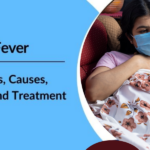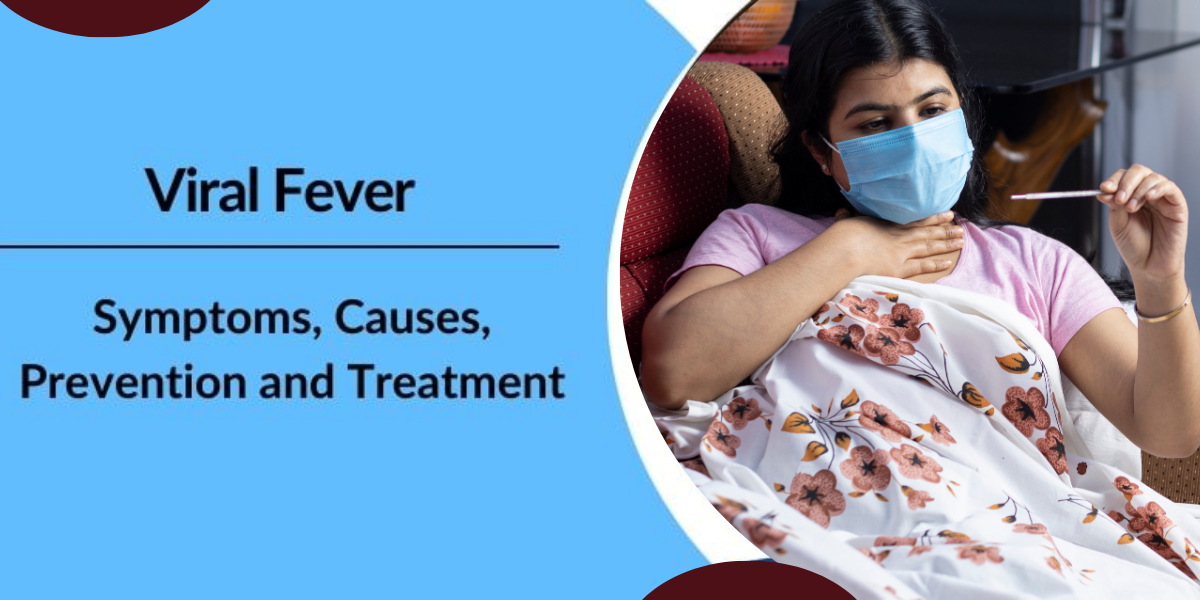Viral fever refers to a rise in body temperature caused by a viral infection. It is one of the most common health issues, affecting people of all age groups. Unlike bacterial infections, viral infections do not respond to antibiotics and often need time and supportive care for recovery. Viral fever may present with symptoms like chills, fatigue, muscle aches, and a general feeling of being unwell. Understanding its symptoms, causes, diagnosis, treatment, and prevention can help manage the condition effectively and reduce the risk of complications. If you’re seeking guidance on managing viral fever, Dr. Mahesh Lakhe, a General Physician in Kharadi, can provide the right advice for your health needs.
What are the symptoms of viral fever?
The symptoms of viral fever can vary depending on the type of virus. However, the common symptoms include:
- High fever (usually above 100°F or 37.8°C)
- Body aches and muscle pain
- Fatigue or feeling very tired
- Headache
- Chills
- Cough or sore throat
- Runny nose or nasal congestion
- Sweating after the fever goes down
- Loss of appetite
- Nausea or vomiting
If you notice any of these symptoms, it’s important to rest and stay hydrated.
What causes viral fever?
Viral fever happens when your body gets infected by a virus. Several viruses can cause viral fever, including:
- Common cold viruses (like rhinovirus)
- Influenza viruses (flu)
- Dengue virus
- Zika virus
- Chikungunya virus
- COVID-19 virus
- Enteroviruses
Each of these viruses spreads in different ways, but they are typically passed on through droplets from coughs or sneezes, or by touching infected surfaces.
How is viral fever diagnosed?
To diagnose viral fever, a doctor usually does the following:
- Physical exam: Checking your temperature, looking for signs of infection, and listening to your symptoms.
- Blood tests: These tests can help detect the virus causing the fever.
- Urine tests: In some cases, your doctor may check for any infections in your urinary system.
- Other tests: Depending on the symptoms and suspected virus, your doctor may ask for other tests.
What are the treatments for viral fever?
Viral fever often goes away on its own, but treatment can help manage symptoms and make you feel better. Dr. Mahesh Lakhe, a General Physician in Kharadi, recommends the following:
- Rest: Your body needs time to fight off the infection.
- Stay hydrated: Drink plenty of water, juices, or soups.
- Medicines: You can take medicines like paracetamol (acetaminophen) to bring down your fever and reduce body aches.
- Warm baths: A lukewarm bath can help cool you down if your fever is very high.
- Avoid heavy clothes: Dress in light clothing to stay comfortable.
- Nutrition: Eating light, healthy foods will give your body strength to fight the virus.
In some cases, if the fever is due to a specific virus like dengue or malaria, your doctor may recommend other treatments.
How can you prevent viral fever?
The best way to prevent viral fever is to reduce your chances of getting infected by following these steps:
- Wash hands regularly: Use soap and water to wash your hands, especially after sneezing or coughing.
- Cover your mouth and nose: When you cough or sneeze, use a tissue or your elbow to prevent spreading germs.
- Avoid close contact: Stay away from people who are sick.
- Get vaccinated: Some viruses, like the flu, can be prevented by vaccination.
- Use mosquito protection: Wear protective clothing and use mosquito repellents if you’re in an area with diseases like dengue or Zika.
- Clean and disinfect: Regularly clean surfaces, especially if someone at home is sick.
By following these steps, you can reduce the risk of catching viral fever and help protect others from getting sick too. If you’re concerned about symptoms or need help managing viral fever, Dr. Mahesh Lakhe, a General Physician in Kharadi, is available to offer guidance and support.


